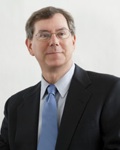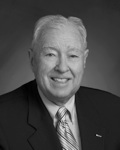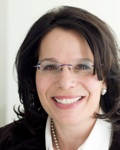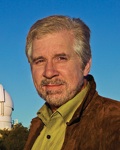Campus News
Founders Dinner on October 21 to honor achievement, service, and scholarship
UC Santa Cruz will host its fifth annual Founders Celebration dinner at the Cocoanut Grove in Santa Cruz on Friday, October 21.





UC Santa Cruz will host its fifth annual Founders Celebration dinner at the Cocoanut Grove in Santa Cruz on Friday, October 21, beginning at 6:30 p.m.
Launched in 2007 to celebrate the spirit of community that resulted in the founding of a University of California campus in Santa Cruz, the event recognizes and honors extraordinary individuals and their outstanding contributions to society.
This year’s featured honorees will be:
Arthur D. Levinson and J. Michael Bishop (UC Santa Cruz Foundation Medal): Arthur D. Levinson, chairman and former CEO of Genentech, and J. Michael Bishop, University Professor and Chancellor Emeritus at UCSF, will be honored for their distinguished careers in biomedical research and biotechnology.
Hal Hyde (Fiat Lux Award): Hal Hyde, UCSC’s first vice chancellor of business and finance, will be honored for his central role in the founding of UC Santa Cruz and his long history of service to the campus and support for its programs and goals.
Julia Sweig (Alumni Achievement Award): Award-winning historian and author Julia Sweig (Porter ’86) will be honored for her influential writing on Latin America and U.S. foreign policy.
Steven Vogt (Faculty Research Lecturer): Steven Vogt, professor of astronomy and astrophysics, will be honored for his groundbreaking discoveries of planets outside our solar system.
The evening will include a celebratory dinner, awards presentation ceremony, and video tributes to each of the award recipients. The dinner’s honorary co-chairs will be UCSC Chancellor Emeritus Robert Sinsheimer and William A. Lee, senior vice president of research at Gilead Sciences, Inc.
Arthur D. Levinson is the chairman and former CEO of Genentech. He began working at Genentech in 1980 after holding a postdoctoral position with J. Michael Bishop and Harold Varmus in the Department of Microbiology at the University of California, San Francisco. Following Genentech’s $47 billion merger with Swiss drug maker Roche in 2009, Levinson left day-to-day operations and is leading Genentech’s new board of directors and steering the integration of the company into Roche.
J. Michael Bishop is an American cancer scientist who received the 1989 Nobel Prize for Physiology or Medicine along with his colleague Harold Varmus. He is a University Professor and Chancellor Emeritus at UCSF. Working together in the 1980s, Bishop and Varmus demonstrated for the first time that normal genes can be converted into cancer genes. Their findings opened a path to understanding how cancer arises and how it might better be controlled.
Hal Hyde is a central figure in the founding of UC Santa Cruz. After serving on a committee helping the University of California select a Central Coast location for a new campus, Hyde became UCSC’s first vice chancellor of business and finance. He held the position from 1964 to 1975. Hyde oversaw creation of UCSC’s infrastructure, including the siting of campus roads and construction of the first colleges, residence halls, and administrative buildings. He also served as the first president of the Arboretum Associates and as a trustee of the UC Santa Cruz Foundation.
Julia Sweig (Porter ’86, Latin American studies) is an internationally recognized authority on Latin America and U.S. foreign policy, especially with respect to Cuba. An award-winning historian and prolific writer, Sweig’s most recent book is Cuba: What Everyone Needs to Know. Her writing also appears in the New York Times, the Washington Post, the Los Angeles Times, the Financial Times, Foreign Affairs, and a host of international publications. She is researching a political biography about the people behind Brazil’s new global footprint.
Steven Vogt, professor of astronomy and astrophysics, has designed, built, and used high-precision spectrometers to find new worlds outside our solar system during his 33 years with UCSC. In 2010, Vogt and a team of planet hunters announced the discovery of an Earth-sized planet orbiting a nearby star at a distance that placed it squarely in the middle of the star’s “habitable zone,” where liquid water could exist on the planet’s surface. Further observations are needed to confirm the discovery, which remains controversial.
The Founders Celebration Dinner begins with a 6:30 reception; dinner follows at 7:30. The cost is $95; to register, go to: http://events.ucsc.edu/founders.
For more information, visit the Founders Celebration web site (above), call 831-459-5003, or send email to: specialevents@ucsc.edu.